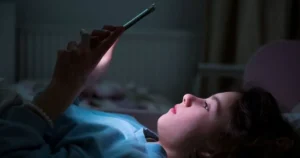Chief Superintendent Nik Adams of Counter Terrorism Policing provides insight on the steps that are being taken to protect young people from being radicalised and what parents can do to keep them safe.
How has Covid-19 changed the number of referrals to Prevent?
The Covid-19 crisis impacted many aspects of policing and Prevent is no exception. We receive around a third of our referrals from the education and health sectors, and as a result of schools closing and the increase in NHS workload, there has subsequently been a decline in the number of referrals since the lockdown was introduced. However, alongside our partners, we are continuing to safeguard people that we were already helping through the Prevent programme, as well as supporting new referrals during this difficult time.
How are you adapting as an organisation?
Counter-Terrorism Police have quickly adapted to ensure we can continue our protection of the UK from the terrorist threat. This includes embracing new ways of working, new technology and maintaining essential services including safeguarding vulnerable people within Prevent.
What might make people more vulnerable at this time?
Although it is rare, unfortunately, there are negative influencers and online groomers who use the internet, social media, and online gaming to spread their extreme ideas. Some of these ideas may be considered radical or extreme and when a person starts to support or become involved in spreading them, this is called radicalisation.
Our experience of radicalisers is that they may link their extreme views to the global, national, or individual response to Coronavirus which could be shown through films, images, and discussions about:
- Conspiracy theories
- Blaming other people for the virus and its impact on life
- Hate against groups because of race, religion, sexuality, and gender
Radicalisers will want as many people as possible to believe their ideas and will sometimes encourage them to take actions which might break the law. This is an example of how people can be drawn into terrorism.
Radicalisers may target people by sending friend requests on popular websites and social media platforms to see who responds. They may strike up a conversation to build a relationship and ask them to chat privately.
Often people will be asked to continue discussions away from mainstream social media, using other platforms and forums to give the radicalised a greater degree of anonymity and make it harder for family and the police to monitor.
How can parents and carers help keep their children safe from negative influences online?
We recognise that this is a difficult time for parents and guardians and that the global pandemic is having a significant impact on young people and families across the UK.
The closure of schools means that opportunities for children to talk to and play with friends will be limited to online interaction, and this will almost certainly lead to children spending more time online.
School safeguarding leads are continuing to provide support to parents and pupils, but this is made harder during lockdown and the limited face-to-face interactions because of the lockdown. As a result, it’s more important than ever that parents are aware of their children’s online activity and talk about to them about the dangers.
Online radicalisation may be hard for parents to notice because it is a complex issue. There are several possible signs that someone may need some help (although a lot of them are quite common among teenagers), but look out for increased instances of:
- Exploring new and unusual websites, chat forums and platforms due to boredom or frustration
- Joining new or secret groups
- Speaking with new friends or being secretive about chats during online gaming or in forums
- A strong desire to seek new meaning, identity, and purpose
- Using language, you wouldn’t expect them to know
- Watching, sharing, or creating films online linked to religious, political, or racial hate
- A growing sense of injustice, expressing strong views that have a negative and narrow outlook
Where can people go for help?
Firstly, we advise that you speak with the dedicated Safeguarding Lead at your child’s school or college. They will know your child and have had extra training to know how to pick up on concerning behaviour. They can talk through your concerns, give advice, and provide extra support should you need it.
If you’d rather speak online, the following websites can help you share your concerns:
Act Early and Action Counter Terrorism websites contain information and guidance.
You can contact NSPCC online or call their helpline 0808 800 5000 .
Children can call Childline on 0800 1111 if they want to talk through their concerns.
If you’re worried someone is in immediate danger, you should always call 999.






